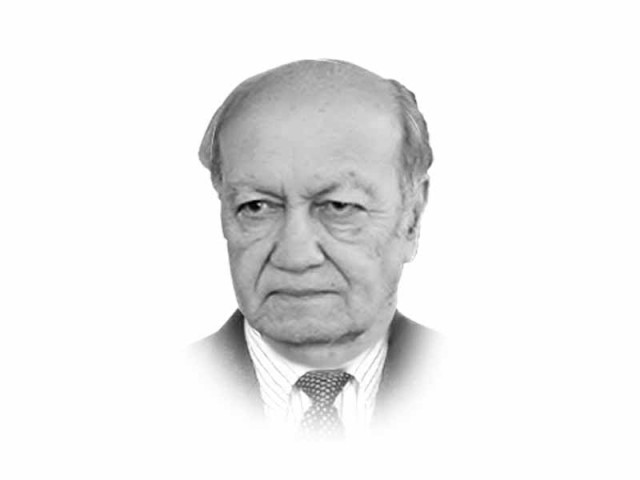Can elections be transformational?
People expect that a sincere, serious attempt will be made by incoming leadership to tackle challenges facing country.

All we are doing is living from one crisis through another, whereas, our leaders should seriously address the multiple challenges the country is facing and compete in the elections on the basis of well-crafted election manifestos. One is aware that promises made during elections are only honoured in breech. But that is not what I am referring to, as the luxury of such delinquency is not available to Pakistan anymore. With militancy and extremism posing an existential threat and the economy in dire straits and heavily dependent on foreign assistance, political parties have to take governance issues seriously. The days of patriarchal and patron-based politics will only add to the gloom that has been the characteristic of our ethos for several years and assumed alarming proportions in recent times. However, if the upcoming elections can generate a purposeful debate and take us away from the frivolous that has been the hallmark of most of the ‘talk shows’ and inter-party duels, it would give people hope and the country, direction. Over the years, as a people and country, we have failed to address the huge problems that have faced us and allowed them to fester to a point beyond the scope of any one political party or individual to put right. While every political party can have its own manifesto, there are certain issues on which there has to be a consensus across the political spectrum. The major challenges are well-known — education, economy, energy, militancy, pervasive violence, etc.
First and foremost, we must give the highest priority to education, which has been grossly neglected by successive governments. This has resulted in more than 60 per cent of the population being totally unprepared to earn a decent living, consequently being amenable to easy exploitation by feudal and tribal hierarchies. The question arises as to why a political class, which is half-educated — and many among them have false degrees — will promote education. It has not done it in the past and to expect them to change would be naïve. The answer lies in developing awareness among the masses; if they want their children to go to school, they should vote for those who stand for education. To combat militancy and extremism would require ideological and political clarity. The warped narrative of radical elements, especially the jihadi and Taliban groups, has been dominating the national discourse. No political party has been able to counter it and mobilise society to provide a more tolerant alternative. The argument that Punjab dominates Pakistan and that it along with the military will never let radical or the separatist forces elsewhere fracture the country apart may not hold valid anymore because the same extremist forces at work elsewhere are also active in Punjab. The emergence of the Punjabi Taliban and the mushroom growth of 28 radical militant groups bears testimony to it. Even the security forces are vulnerable to its effects, as we saw so clearly with the assassination of the governor of Punjab and the recent court martial of a serving brigadier and other officers at the GHQ, for an attempted coup.
It was thus reassuring that General Ashfaq Parvez Kayani made it unmistakably clear during his Independence Day speech at the military academy that the real threat was internal. In a normal democratic country, this statement should have come from civilian leadership. So far, most of the parties are ambiguous as to how they will fight militancy. Here, too, Imran Khan has spelled out his thinking and would like to negotiate with the militants. But will that work if it has not in the past? These are the questions that need to be discussed and debated during the coming months. No one expects the country to be turned around soon but what the people do expect is that a sincere and serious attempt will be made by the incoming leadership to tackle these challenges. However, this can only happen if the people are more circumspect in choosing their leaders during the coming elections.
Published in The Express Tribune, September 13th, 2012.















COMMENTS
Comments are moderated and generally will be posted if they are on-topic and not abusive.
For more information, please see our Comments FAQ